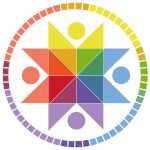Projects & Programs
Projects
The Gadugi (ᎦᏚᎩ) Project
Kinship caregivers are a primary resource for vulnerable children to have a safe environment while maintaining connections to their culture and community. However, without support, many kinship caregivers struggle to work effectively with the parents of the children in their care and to access the resources necessary to meet their own needs as caregivers. Many...
Indigenous Voices to Enhance and Improve Wellbeing
Why Survey Results
CBPR Project: Research for Improved Health
NARCH Research Partnership “Research for Improved Health (RIH): A National Study of Community-Academic Partnerships” (U26IHS300009) funded through the Native American Research Centers for Health (NARCH V), National Institutes for Health (NIH) & Indian Health Service (2009-2013). This project was an in-depth investigation of promoters and barriers to Community Based Participatory Research (CBPR) in American Indian/Alaska...

Healing Seasons: Preventing HIV among Native Americans through the treatment of PTSD & Substance Use
Lead Investigators: Cynthia R. Pearson, PhD Debra Lee Kaysen, PhD In communities where there are disproportionate risks for trauma exposure and substance misuse, mental health services are generally overlooked and under resourced. Issues such as post-traumatic stress disorder (PTSD), substance use disorder (SUD), HIV/STI risks are often treated separately rather than combined. Built on an...
Health Survey of Two-Spirited Native Americans supplement: Trauma, Coping, and Health Outcomes Among HIV+ Native Americans
This supplement explores trauma, stress, coping, and alcohol and other drug use among HIV-positive American Indians.
NARCH V – Research for Change: Cross-Site Multi-cultural Community-Based Participatory Research
The causes of health disparities among communities of color and other underserved populations are complex and include social, biological, economic, cultural, and historical factors. A critical step in reducing health disparities among these communities is addressing the mistrust that characterizes community attitudes towards research and to ensure authentic community engagement in improving health. This study is an in-depth investigation of promoters and barriers to Community Based Participatory Research with the goal of improving health status and promoting health equity.
Caring for our Generations supplement: HIV/AIDS Supplement to Caring for our Generations
This project is a supplement to the Caring for Our Generations Project and explores risk and protective factors related to HIV/AIDS, Hepatitis-C, and other STIs.
Capacity Building from the Inside Out: Adapting the CITI Ethics Certification Training Module “Assessing Risk and Benefits” for American Indian Community Researchers
http://iwri.org/wp-content/uploads/2014/05/Consent-RETI-Stamped-Consent-form.pdf The overarching goal of the project is to strengthen research capacity and increase AIAN community involvement in NIH-funded research by developing and psychometrically validating a Collaborative IRB Training Initiative (CITI) training that is relevant, passable and accessible
Healthy Hearts Across Generations supplement: Diabetes and CVD risk Among American Indians in the Pacific Northwest
The major goal of the proposed supplement is to focus substantively on the role of diabetes in CVD risk and work towards reducing diabetes among this high-risk population.
Caring for our Generations
This project explored maternal health behaviors, maternal substance use, risk factors for substance use during and after pregnancy, and protective factors that support healthy maternal behaviors. This study had five aims: 1) Conduct qualitative formative research with mothers aged 18-55, Native health providers, elder/traditional healers, and Native youth; 2) Conduct survey interviews with community members to establish baseline data related to maternal health outcomes, protective health behaviors, risk factors for substance use during and after pregnancy, and social support for mothers; 3) Develop a culturally-based intervention targeting adult AI mothers in the Northwest; 4) Translate and disseminate the findings to the tribe and prepare translational materials for community members and service providers; and 5) Expand research infrastructure at Lummi Tribal Health Clinic and increase research capacity in the tribal community.
Next page



